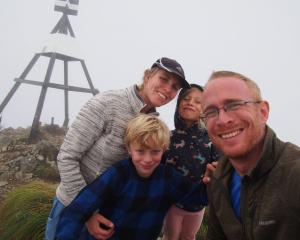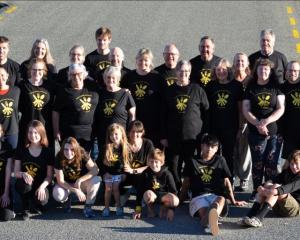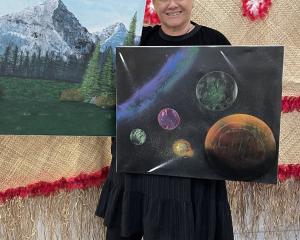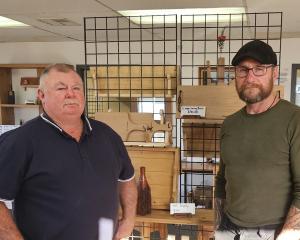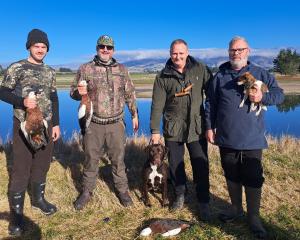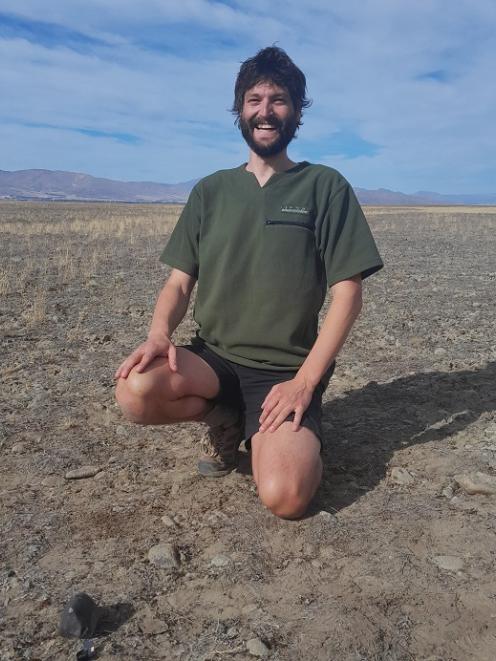
It was a meteorite, believed to be the first discovered in New Zealand in more than two decades.
A group of more than 20 people in Lake Tekapo set out early yesterday to find the meteorite after a fireball was seen racing across the sky over North Otago and South Canterbury about 9pm on March 13.
Dennis Behan saw the fireball while he was sitting in his spa in Queenstown, and helped plan and co-ordinate the search with University of Otago geologist Dr Marshall Palmer.
Dr Palmer said the discovery was "amazing".
"We have a network of meteor-tracking cameras across the country ... those cameras are connected to a global network which calculated its trajectory.
"That gave us a search area — we went out [yesterday] to search for it.
"We started a grid search, but within 10 minutes someone had identified something that looked like a meteorite."
The intended search area was 7000sq m.
"That was the plan — we didn't get that far, we found it pretty quickly. It was pretty crazy."
Dr Palmer said people were initially unsure about what the rock formation actually was.
"It took me a while to warm up to the idea it was a meteorite, but we consulted Prof James Scott [of Otago University] and he helped confirm it.
"This is awesome, it’s exactly what we set out to achieve when we set up the network of tracking cameras."
He said there had been similar events, but never one that led to a discovery of this scale or size.
"We were just stoked."
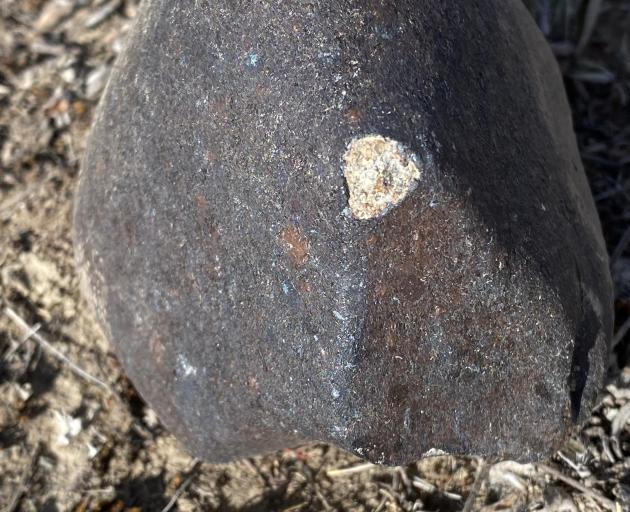
"Meteorites tell us a lot about the formation of our solar system.
"They're older than the Earth; so they give us a story about how humans fit in the wider scheme of things."
If people located a meteorite, they should not "try to touch it or wave a magnet" near it.
Instead, they should contact a scientist and pass on its location.
This meteorite was "about the size of an apple", and was the first located in New Zealand in about 20 years, he said.
"There were a lot of people in the background that have been essential to its discovery.
"We now know we can locate meteorites with our tracking technology."
The Otago University geology department would analyse the meteorite, publish a paper and hopefully get it named.
"From there, we would hope it ends up in a museum.
"But it might have its pride and place in the university geology department common room for a wee while."



